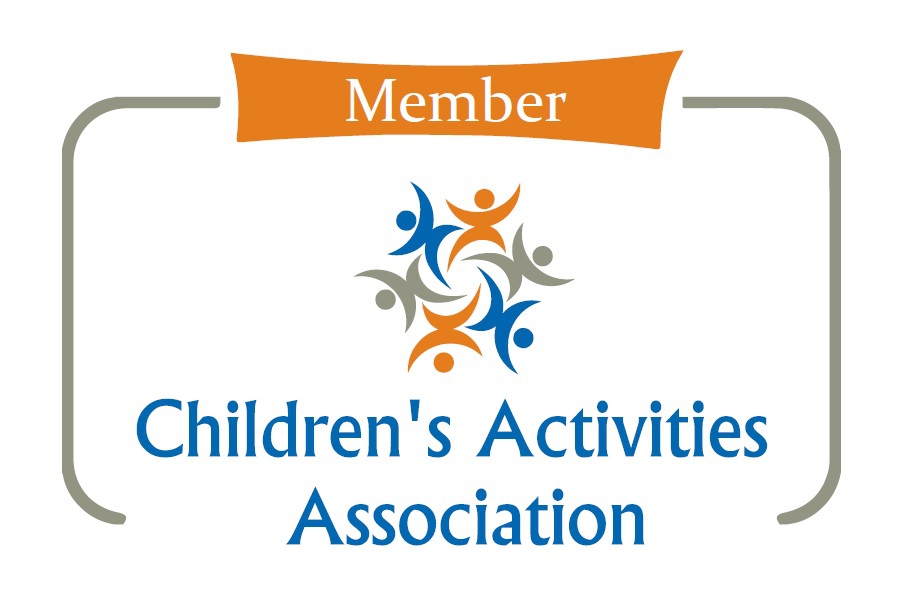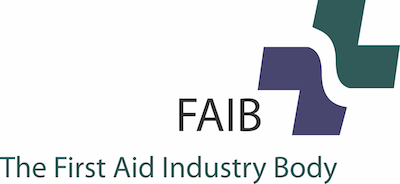When you hear the word hospital, “fun” and “play” are probably the last things that come to mind - especially when it comes to your child. But what if we told you that play could actually help children cope with the trauma of hospital visits, recover faster, and even face frightening treatments with calm and confidence?
In this blog, Mini First Aid founder Kate is joined by Megan Holmes, a Health Play Specialist at Leeds Children’s Hospital, and parent Cheryl Duerden, whose son Seth has experienced the transformative power of play therapy firsthand. Their conversation shines a light on the vital (but often overlooked) role of play therapy in paediatric healthcare.
Whether your little one is facing a short stay or long-term hospital treatment, understanding the role of a play specialist could make all the difference. Read on to learn how these amazing professionals support children - and how play can become one of the most powerful tools in your child’s medical journey.
What is Play Therapy in a hospital?
Play therapy in a hospital setting might sound like fun and games, but it’s actually a deeply therapeutic, structured, and evidence-based approach. Play specialists are trained professionals who use play to support children through medical procedures, reduce fear and anxiety, and give them back a sense of control in a very unfamiliar environment.
Megan Holmes, a Health Play Specialist on the paediatric intensive care unit (PICU) in Leeds, says it best, "Children are entitled to play, however sick they are."
Play therapy isn’t just entertainment. It’s about helping children process what’s happening to them, using play to reduce fear, improve communication, and prepare them for treatments. And it’s about making hospital visits feel a little less scary - for children and their families.
Meet Megan and Cheryl
Megan works with some of the sickest children in the hospital. Even on the intensive care unit, where machines beep constantly and wires are everywhere, her role is to bring joy, normality, and therapeutic support through play. She might be preparing a child for a complex procedure or simply helping them to smile during the hardest day of their life.
Cheryl, a parent guest on the podcast, shared her personal journey with her son Seth. At nine months old, Seth was hospitalised with a severe respiratory illness. Over time, he was diagnosed with bronchiolitis obliterans and bronchiectasis - conditions that require ongoing treatment and hospital visits. As Cheryl explains, the experience was overwhelming, especially when Seth began to develop extreme fear and distress around needles.
“He was just two and would cling to the doorframe, refusing to go into the treatment room. He knew it meant pain.”
That’s where play therapy came in. Cheryl worked with a play specialist at Leeds General Infirmary to support Seth over six to eight weekly sessions. They used play to explore medical equipment safely - on a teddy called George Bear. Gradually, Seth began to understand what was going to happen during treatments, and crucially, the fear began to fade.
How Play Specialists support children
Play Specialists do far more than keep children entertained during hospital stays. Their work falls into three main categories:
1. Distraction during procedures
Children undergoing blood tests, cannulas, or having dressings changed can become incredibly distressed. Play Specialists use distraction techniques - from bubbles and iPads to silly costumes and sensory toys - to refocus attention and reduce anxiety.
Megan once dressed in a banana costume to help a child feel relaxed during a portacath access. That moment of humour can make all the difference.
2. Therapeutic preparation
Understanding what’s going to happen reduces fear. Play Specialists use real (but safe) medical equipment to walk children through what to expect - step by step. This is known as procedural preparation, and it’s incredibly effective in helping children feel more in control.
Cheryl explains, “We played with everything - syringes, cleaning wipes, dummy needles. Seth saw it wasn’t scary anymore. It was just part of the plan.”
Children like Seth who once resisted treatment rooms now walk in calmly, knowing what to expect.
3. Normalising the hospital experience
Sometimes, the goal is simply to make hospital feel less alien. Long stays, repeat visits, and unfamiliar settings can leave children feeling scared and isolated. Play helps bring normality. Whether it’s painting a unicorn, singing songs, or throwing a campfire party on the ward, it gives children back their childhood.
“Play might be the one thing that makes a child smile during a storm of worry,” says Megan.
 Supporting families, not just children
Supporting families, not just children
Cheryl shared that the play sessions helped her as much as they helped Seth. “We don’t have medical backgrounds, so the sessions helped us understand what was happening too. We learned the language, the steps, and how to support Seth ourselves.” Play therapy equips families with practical tools they can use outside hospital settings too - from how to talk about treatments to keeping calm during procedures.
Success stories from the hospital floor
From children on ventilators to those preparing for major surgery, Megan’s work spans a huge range of needs. Some recent success stories include:
- Rehab through play: One child recovering from a long time on a ventilator needed to build up her strength. The therapy team - including physios, occupational therapists, teachers and play specialists - threw her a birthday campfire party on the ward, complete with tents and marshmallows. She laughed, she played, and she got moving again.
- VR in theatre: Leeds Children’s Hospital now uses virtual reality headsets to help children remain calm during procedures that don’t require general anaesthetic. Instead of an operating room, children might find themselves on a sunny beach or in a magical garden. The result? Calm, distraction, and greater cooperation.
The importance of planning and teamwork
One of the most powerful takeaways from the episode is that planning is key. Whether it’s prepping a child for a needle or preparing for a scan, success often lies in taking the time beforehand to build trust and confidence.“ There’s no point in dragging a child into a treatment room already in distress,” says Megan. “It’s about working together - child, parent, medical team - to put a plan in place first.” Cheryl echoes this. The work they did with Seth was proactive, consistent, and collaborative. And it paid off.
What if my hospital doesn’t have a Play Specialist?
Megan reassures us that most major hospitals across the UK now have dedicated play teams. These teams might include play leaders and trained play specialists, working across wards, MRI departments, and even theatres. Smaller hospitals may not have a full team, but many still offer play services in some form. If your child is having treatment, it’s always worth asking your medical team if a play specialist or play leader is available.
Why it matters
Whether your child is facing a simple scan or repeated complex treatments, the emotional toll of hospital care can be huge. Fear, anxiety, and trauma can build quickly - and without support, they can linger well beyond discharge. But with the support of play therapy, hospital visits can become less scary. Children like Seth can build resilience. Families can gain tools to cope. And hospital staff can deliver treatment more safely and effectively.

What can you do now?
- If your child has an upcoming hospital visit, ask your care team about access to a play specialist. Even one session can help reduce anxiety.
- Prepare at home by using books, toys, or even a teddy to roleplay what might happen at hospital. Use simple language and encourage your child to ask questions.
- Speak to other parents. Like Cheryl, many parents have found huge value in talking through what worked - and what didn’t.
- Keep communication open. If your child is frightened, validate their feelings and remind them that you’re a team.
- Book a Mini First Aid class! Understanding the basics of child health and emergencies can help you feel more confident, more in control, and better able to support your family. Find a class near you here.
Final thoughts
Megan and her team at Leeds Children’s Hospital are doing incredible work - and they’re not alone. Play therapy is growing across the UK, and as more parents experience the benefits, demand continues to rise. So next time someone says “It’s just play,” you’ll know: play is powerful. It’s comfort, it’s preparation, it’s healing. And it just might be the thing that helps your child through their hospital journey with strength, understanding, and a smile.
Listen to the podcast
Listen to this episode of the Family Health by Mini First Aid podcast – available on all major platforms, or watch on YouTube.
7 Days of Play
In September 2024, Leeds Hospitals Charity launched a £500,000 fundraising appeal called ‘7 Days of Play’.
It costs around £106 a day to fund a Play Worker and although some wards had dedicated Play Leaders and Specialists, some wards had no access to play at all and other young patients miss out on play at weekends. This fundraising appeal helped expand the Play Team at Leeds Children’s Hospital, providing access to therapeutic play every day of the week for seriously ill children. Play can massively reduce anxiety and stress. Help to normalise hospital surroundings. Be a friendly face to children and their families. And help our smallest patients understand what’s happening to them, making unbearable procedures bearable, speeding up treatment, recovery and rehabilitation.
You can find out more: https://www.leedshospitalscharity.org.uk/Appeal/play
Say hello to instant comfort with our new Teddy Instant Cold Packs!
Whether it's a bumped knee at the playground or a sprain on the sports field, our Teddy Instant Cold Packs are here to help – no freezer required. Simply squeeze to activate and enjoy fast, cooling relief for minor injuries like bruises, bumps and sprains. Designed with little ones in mind (but just as handy for grown-ups), these single-use packs are trusted by Mini First Aid trainers and loved by parents. Keep a pack in your changing bag, car or travel first aid kit – because you never know when you’ll need that comforting chill. Each pack contains 2 disposable cold packs for easy, on-the-go soothing.










